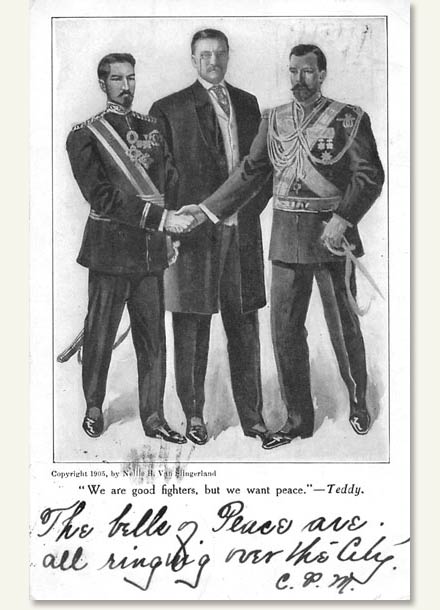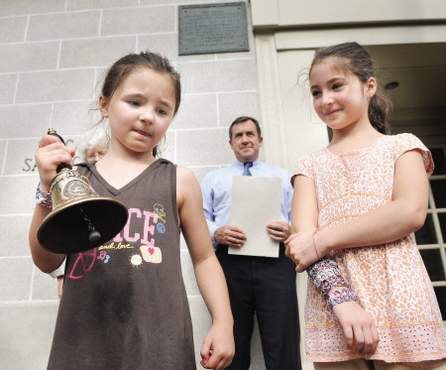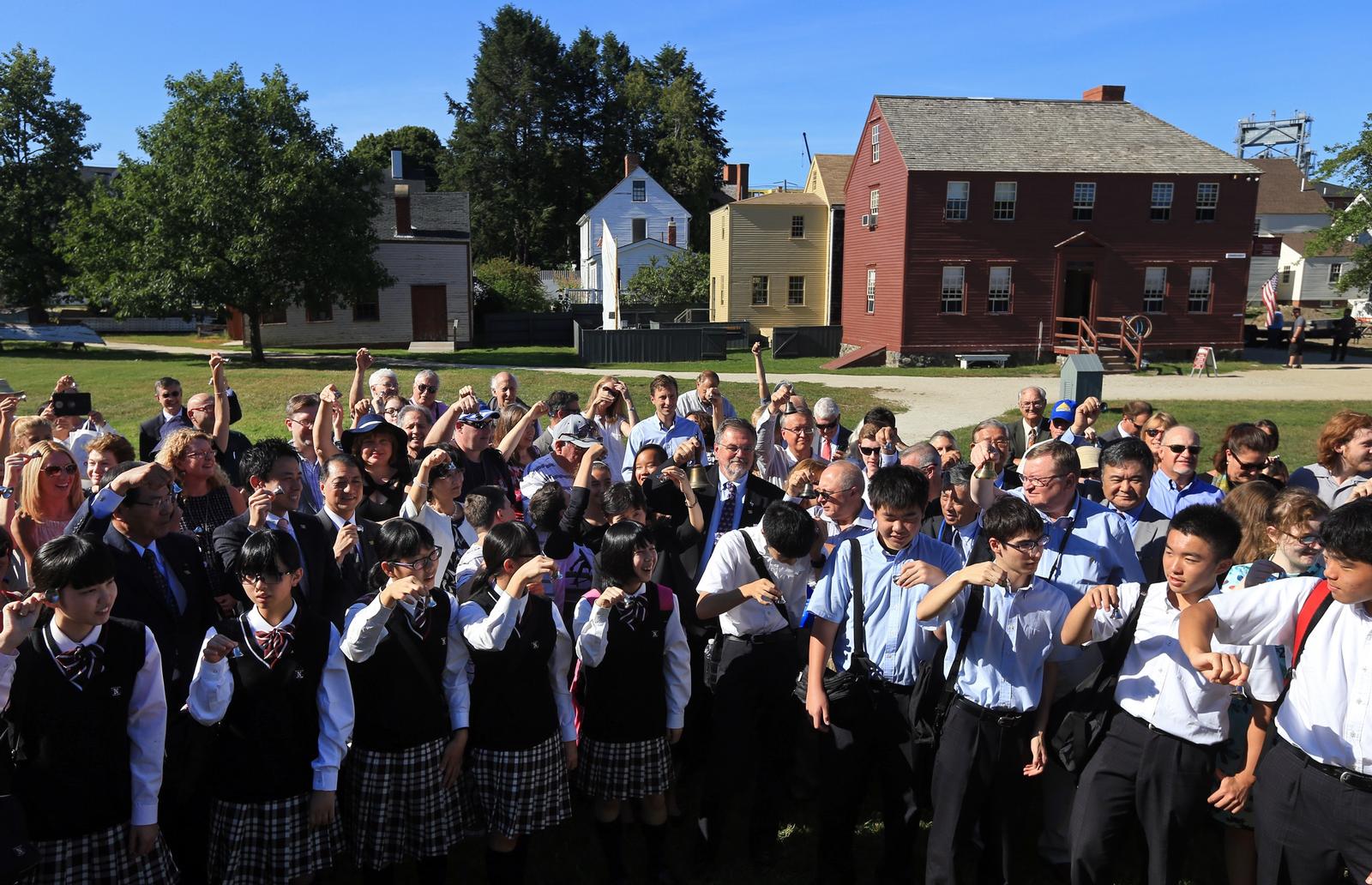- Home
- JOIN
- History
- Maps
- Treaty Forums
- Purpose of the Peace Treaty Forums
- Forum I Jun 1994
- Forum II Oct 1994
- Forum III Sep 1995
- Forum IV Mar 2000
- Forum V Dec 2006 TR Nobel 100th
- Forum VI Dec 2007 with Dennis Ross
- Forum VII Dec 2008 with Samantha Power
- Forum VIII Dec 2009 Obama's Nobel
- Forum IX Nov 2016 Russia-Japan
- Forum X Nov 2019 Jake Sullivan
- Forum XI Sep 2020 Joseph S. Nye Jr.
- Citizen Diplomacy
- Connections
- Spiritual Aspects
- 2005 100th Anniversary
- 2006 Nobel Prize 100th
- 2007 Commemorations
- 2008 Commemorations
- 2009 Commemorations
- 2010 Portsmouth Peace Treaty Day
- 2011 Order of the Rising Sun
- 2012 100 Years of Cherry Trees
- 2013 Historic Marker Dedicated
- 2014 Sister City Celebrations
- 2015 110th Anniversary
- 2016 Commemorations
- William Chandler & Concord, NH
- Kentaro Kaneko & Dublin, NH
- Asakawa, Dartmouth & Hanover NH
- Carey Family & Creek Farm
- Henry Denison & Lancaster, NH
- John Hay & Newbury, NH
- Japanese Visit Manchester, NH
- Wentworth & New Castle, NH
- Portsmouth: Temple Israel, Rev. Clark
- Sarah Farmer & Eliot, Maine
- Adm. Mead & Kittery, Maine
- Elizabeth Perkins & York, Maine
- Educational Resources
- Living Memorial Project
- Contact Us
- 1713 Treaty

The Distinctive Tradition of Bell-ringing in Portsmouth
When Portsmouth citizens ring bells each Friday evening to honor the first responders and support workforce dealing with the COVID-19 pandemic in 2020 they are following a long tradition.
Bells Have Rung in Times of War, Peace and Community Alarm
As American poet Archibald MacLeish suggested in his 1975 radio-drama poem, “Great American Fourth of July Parade,” bells have rung in times of war and peace throughout history; and for generations, in New England. The poem begins with the announcer talking about New England church bells:
“Think of a country steeple under country stars. /Think of an old man in a kind of closet. He has a rope's end in his hands./ There's nobody awake for miles -- he knows that: only off beyond him somewhere, deeper in the night, the hills, a bell that answers his bell answering…/Conway answering Chocorua./Which answers./ Think of that closet and the slender rope worm smooth with human hands for generations --/with human handling./ That's New England __/church bells in New England -- steeple answering to steeple in New England.”
Others have written of the importance of bells to summon large crowds in the years leading up to the American Revolution.
At one level ringing and tolling represented the voice of the people, especially the people assembled for a demonstration. The larger the gathering, the easier to promote the sound as representing a consensual voice... Bells served as the voice of authority. Because churches and local governments controlled access to bells and regulated their use, ringing or tolling a bell for political demonstrations implied that either authorities had granted consent or organizers had sidestepped official channels. Moreover, because bells played a central role in ordering life and regulating activity in urban communities, their sound legitimated proceedings in a way that complementary symbolic gestures did not. Bonfires and illuminated windows did not open markets or signal curfew, just as closed businesses and lowered flags did not summon parishioners to church or bring out neighbors to extinguish fires. For more on bells in Early America, click here.
“Firebells” – rung to alarm citizens that a fire was burning and needed their response as volunteer firemen – were unfortunately common in Portsmouth’s history. First in 1802, and then “The Great Fire” that happened on Dec. 22, 1813. Its path of destruction stretched 15 acres from one side of the downtown to the other and consumed a total of 272 buildings. Charles W. Brewster, described the scene in detail in his book, Rambles About Portsmouth: Sketches of Persons, Localities, and Incidents of Two Centuries, Principally From Tradition and Unpublished Documents. The church bells all started ringing and “[by] eleven o’clock almost every house in State Street and on the south side of Daniel Street was in flames.” The Portsmouth Athenaeum created an exhibit, "Going to Blazes," to mark the 200th anniversary of the 1813 fire.
The Portsmouth Tadition of Bell-ringing
Bell-ringing marking the end of the American Civil War in 1865 in Portsmouth. That moment was recalled in 1890 by Rev. Henry Hovey of the Portsmouth Storer GAR Post 1. He remembered that celebration from when he was a schoolboy, 25 years before. Towns throughout the country marked the end of the war with bell-rining, to such an extent that in 2015, to commemorate the 150th anniversary of Robert E. Lee’s signing of the surrender to Ulysses Grant at Appomattox, the National Park Service organized a “Bells Across America” participatory event.
The tolling of a ship's bell is also central to Memorial Day, Navy Day and USS Thresher commemorations in Portsmouth, when Navy veterans honor the Portsmouth submarines lost at sea.
 Bell-ringing and the Portsmouth Peace Treaty
Bell-ringing and the Portsmouth Peace Treaty
Since 1905, Portsmouth has made bell-ringing its distinctive celebration of a peace treaty that was signed at the Portsmouth Naval Shipyard.
Portsmouth citizens had turned out to welcome the Russian and Japanese diplomats when they arrived in Portsmouth on August 6, 1905 and significantly contributed to the success of the peace conference by sustaining the atmosphere for peace now known as citizen diplomacy. The 1905 newsreel of the arrival parade was filmed by Thomas Edison:
The bells rang for half an hour on August 29, 1905 when Mayor Marvin heard that the Russian and Japanese diplomats had resolved the final issues that divided them. On September 5, 1905, at 3:47 pm, the bells of Portsmouth rang out in celebration of the signing of the Portsmouth Peace Treaty ending the Russo-Japanese War. Signaled from the Portsmouth Naval Shipyard where the negotiations and the Treaty signing took place, the bells expressed the joy of the local community who had taken personal interest in the world event happening in their hometown.
The tradition of commemorating the day of the Treaty signing with bell-ringing began in 1906 when the city celebrated the dedication of a plaque on Building 86, the site of the formal negotiations at the Shipyard, with church bells ringing for a half hour at morning, noon and night.
Portsmouth Peace Treaty Day, September 5th
Since 2010, when the NH Legislature voted unanimously to recognize the history and citizen diplomacy of the Portsmouth Peace Treaty by declaring September 5th (the day the Treaty was signed) as Portsmouth Peace Treaty Day, an annual Governor’s Proclamation and bellringing has marked the day.
The bell-ringing takes place throughout the City -- North Congregational Church,, Unitarian-Universalist (South) Church Portsmouth, St. John’s Episcopal Church, South Meeting House (PPMtv), First United Methodist Church Portsmouth, , Immaculate Conception Church Portsmouth, Middle Street Baptist Church, St. Nicholas Greek Orthodox Church, Christ Episcopal Church Portsmouth, Second Christian Congregational United Church of Christ Kittery, First Baptist Church Kittery First Congregational Church Eliot ME and Eliot United Methodist Church -- and in other locations across the state. In Portsmouth, the celebrations involved many historic bells.
For more on the historic bells in the steeples of Portsmouth click here.
Images and video of Portsmouth Peace Treaty Day bell-ringing:
2005: Guests ring bells at the Mayor’s Centennial Tea on Portsmouth Peace Treaty Day 2005 after the US Navy fired a commemorative salute at the Shipyard that traditionally signals the start of the bell-ringing on September 5th,
2010: Mayor Tom Ferrini read the Proclamation, as Asst. Superintendent Zadravec's children ring the bell for Portsmouth Peace Treaty Day. [Credit: Deb Cram, Seacoast Media Group]

2014: Japanese Consul General Muto, Portsmouth Mayor Bob Lister and NH Governor Maggie Hassan rang bells for Portsmouth Peace Treaty Day. For video, click here.

2015: On September 5, 2015 – the 110th anniversary of the Treaty-signing, a special bell-ringing ceremony and reading of the Governor’s Proclamation of Portsmouth Peace Treaty Day 2015 by Portsmouth Mayor Bob Lister took place at Strawbery Banke Museum. Kyohei Sakita, Mayor of Nichinan, Japan – Portsmouth’s Sister City and the birthplace of lead Japanese negotiator Baron Jutaro Komura – members of the Nichinan City Council and a delegation from the Nichinan Gakuen Jr-Sr High School led by school director Masakuni Soeda attended along with a descendant of Baron Komura, the Japanese Consul General and special guests from Russia: Consul General Igor Golubovsky of the Russian Federation in New York, Alexander Kutznetzov, Director of the Russian Foreign Ministry Archives Museum in Moscow and Vladimir Vinokurov, Ambassador-at-Large, Russian-American Presidential Commission of the Ministry of Foreign Affairs of the Russian Federation.
2019: Mayor Jack Blalock, representatives from the NH Congressional delegation’s offices and a crowd of local citizens joined the bell-ringing. For video, click here.
© Copyright 2005 Japan-America Society of New Hampshire
NH Web Design | Content Management | Web Hosting